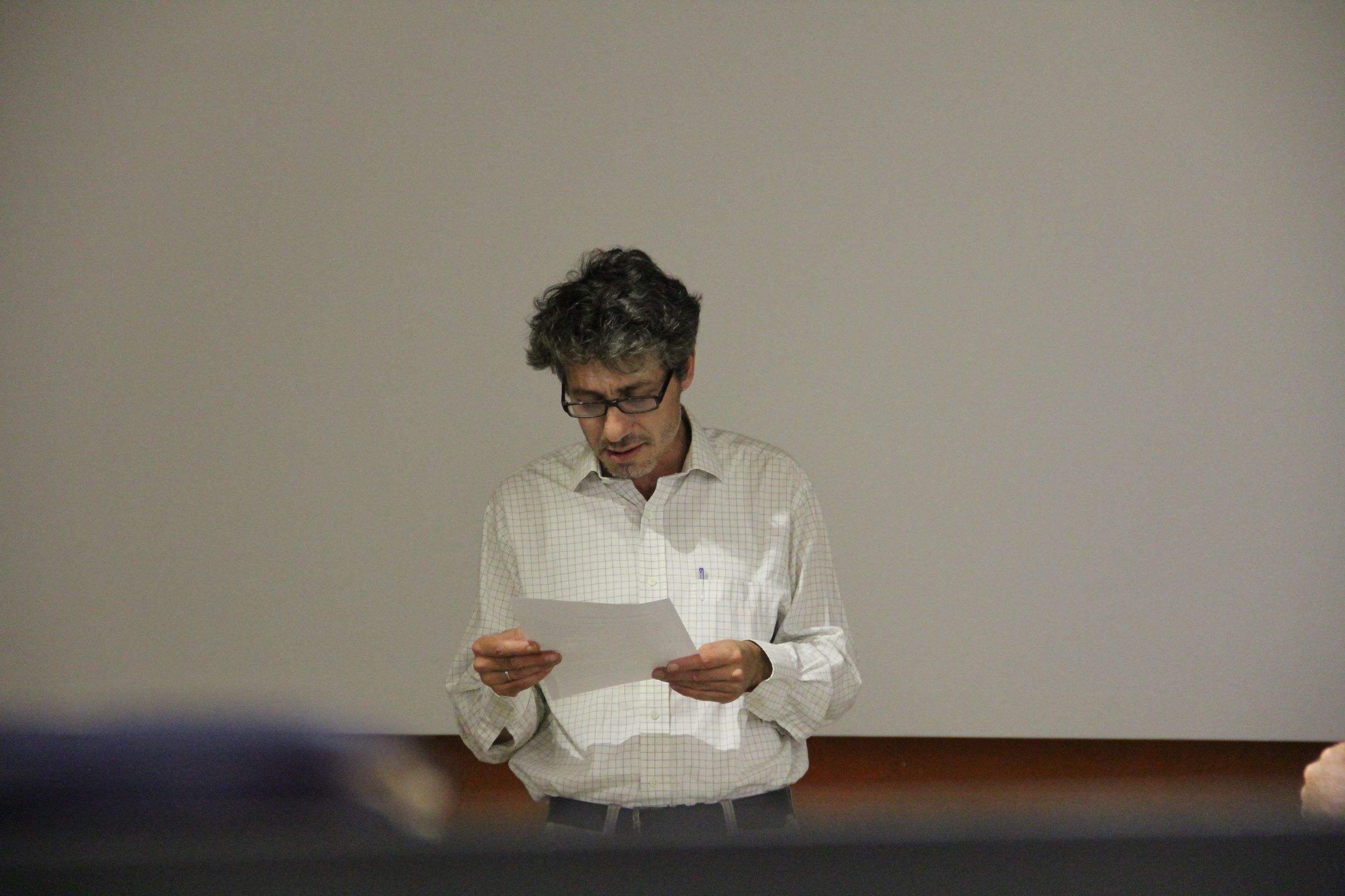
Summer School as School
3-18 July, 2016
Public Program
Wednesday, 13 July 2016 at 21:15
Bujar Hoxha
Semiotics of the Parthenon as a Pillar of Modern Democracy
Venue: Boxing Club
Mark Isaku Street, 10000 Prishtina
Republic of Kosovo
How does the Parthenon stand for democracy and why? What is it that makes the Greek pillars so appealing to modern democracies?
Is it for the Golden Ratio as a system of rational/harmonious/human proportions, and if so, is Democracy a civilizational Golden Ratio or just an eye/mind spectacle/manipulation?
In order to interpret the iconography of the Parthenon related to modern democracies a metaphor of translation will be applied, concerning the multiple transpositions the building has evolved through. This, in particular, refers to an architecture work of art as a “symptom which expresses itself in a countless variety of other symptoms” (Panofsky) related to broader cultural contexts. Further “translation” will take place in the double movement of purification and contamination, specificity and hybridity, among semiotic and iconological analysis – the word and image dialectic.
Such a double discourse imposes rendering a signification process; Greimasian actantial relations would render vivid contradictions, which will imply a subjectivization process, thus manifesting itself towards a passionate taxonomy such as despair and manipulation, out of ready-given structures seen as signs out of the analyzed architectonic objects.
Dr. Bujar Hoxha was born in 1966 in Skopje, Macedonia. He finished his elementary and secondary school in his hometown. He enrolled Faculty of Philological Studies at the University of Skopje in 1984 and graduated in 1989: English Language and Literature with Italian Language and Literature. He further enrolled his Post-graduate studies at the University of Zagreb in Croatia, and gained his MA degree on the following topic: “Semiotics of the Characters of Othello and Rigoletto” in 1998. He enrolled doctoral studies and completed them in 2008, on the following topic: “Umberto Eco’s theoretical and methodological views: the poetics of the open work”. He gained the academic title of “Associate professor” in 2014, and currently works at the South-East European University in Tetovo and Skopje, Macedonia, since 2001.
Until now Dr. Hoxha has been teaching the following subject-matters: Theory of Literature, Shakespeare’s Theatre, Introduction to Communication Sciences, Theory of Communication, Multicultural Communication, Semiotic Approaches to Communication.
Out of his publishing and scientific activities one can number the following: two novels in Albanian: ‘Rruga per ne Olimp”, Asdreni, Skopje, 1995, and “Ludvig Vani dhe une ishim vetem”, Shkupi, Skopje, 2006. He has further published the following: “Cultural Heritage and Identity: the Albanian Experience”, in ‘Albanian Journal of Educational Studies” , Tirana, Albania, 2014; “Normality vs. Abnormality in a Child’s Behavior”, European Scientific Journal, Macedonia, 2014, “A Paradoxical Way of Communication in Children with Autism” in “Sociology of Study:”, Illinois, USA, 2015, and “Sui limiti della semiotica. La soggettività opposta all’oggettività”, in EC – Rivista italiana degli studi semiotici, University of Palermo, Palermo, Italy, in 2016.
Dr. Hoxha is a member of the International Semiotic Institute in Kaunas Technology University, Kaunas, Lithuania, as well as a member of some international Projects under the supervision of Dr. Eero Tarasti from the University of Helsinki in Finland; such as: Semiotics of Cultural heritages, as well as Semiotics of Human Disabilities. His research fields include: semiotics of passions, semiotics of communication as well as existential semiotics.
Main supporters of SSAS 2016:
ERSTE Foundation, The Austrian Federal Chancellery, Trust for Mutual Understanding (TMU), Ministry of Education of the Republic of Kosovo and RIT Kosovo.
SSAS 2016 is also supported by:
Culture for All - phase III, Municipality of Prishtina, Kosovo Foundation for Open Society (KFOS), Independent Curators International (ICI) , The Friedrich-Ebert-Stiftung Prishtina Office, Ministry of Diaspora of the Republic of Kosovo, Austrian Embassy in Pristina, Embassy of the Republic of Slovenia Priština, Ambassade de France à Pristina, Youth Initiative for Human Rights Office in Belgrade, AMM, X-Print and DZG.